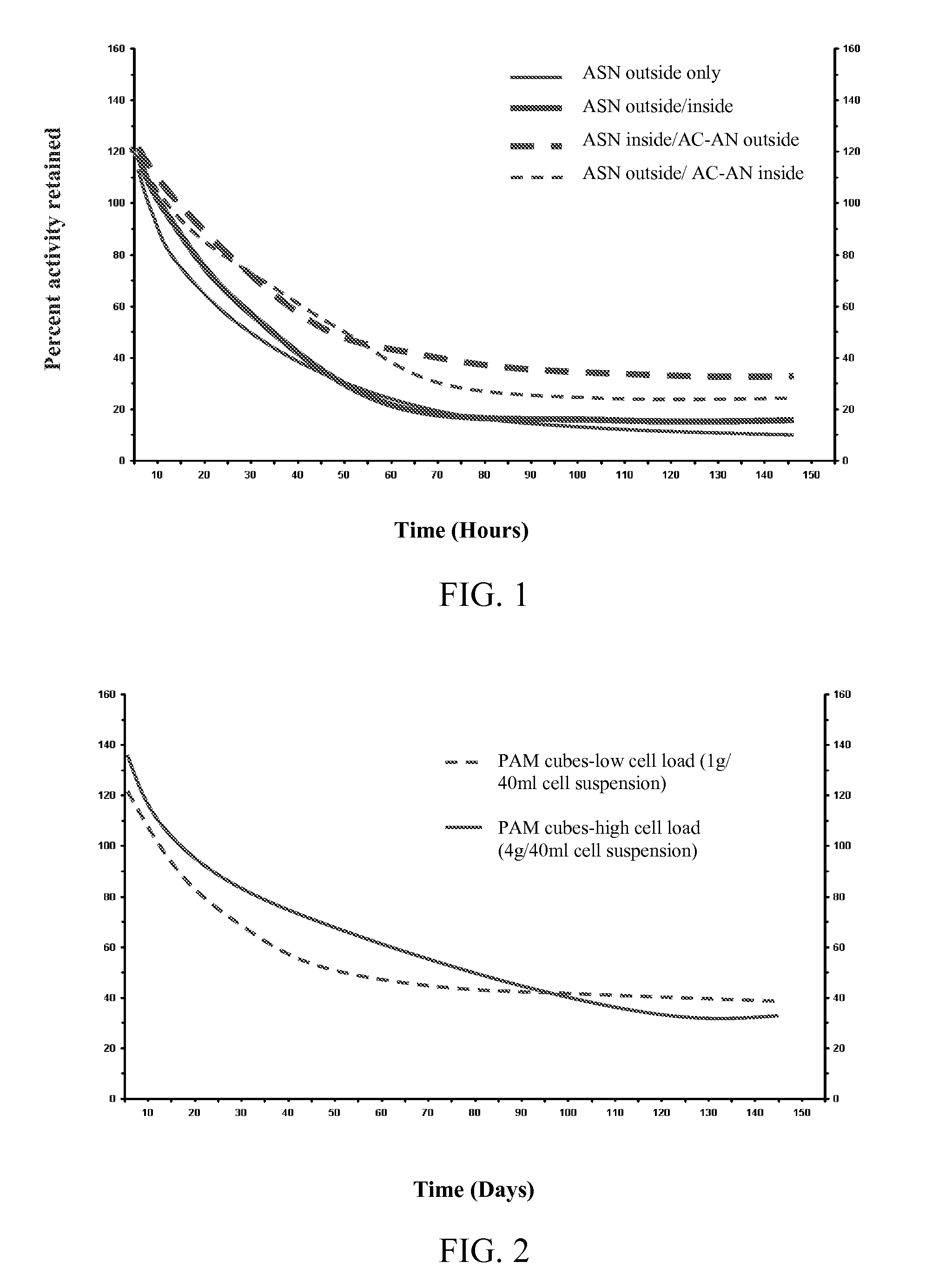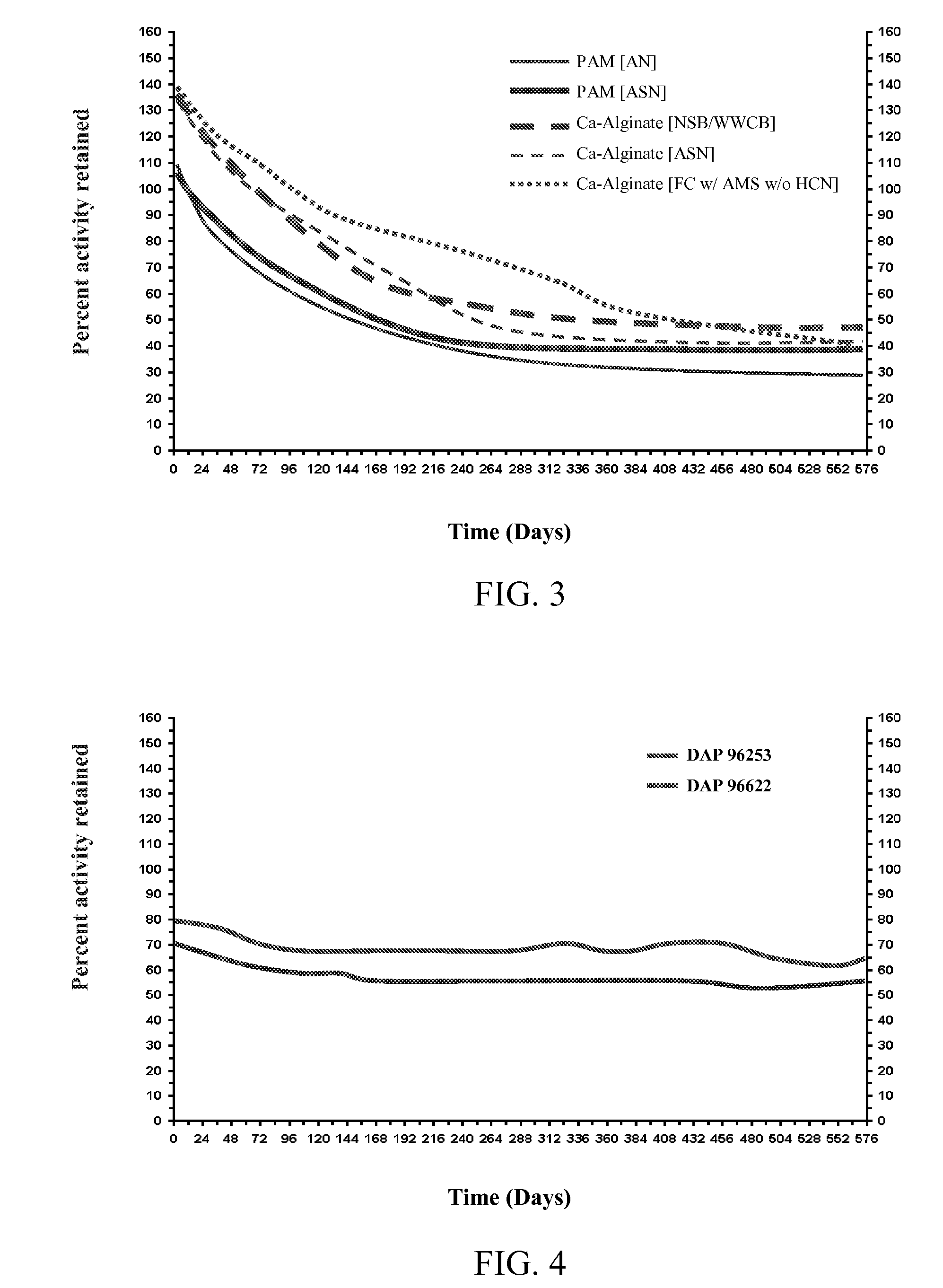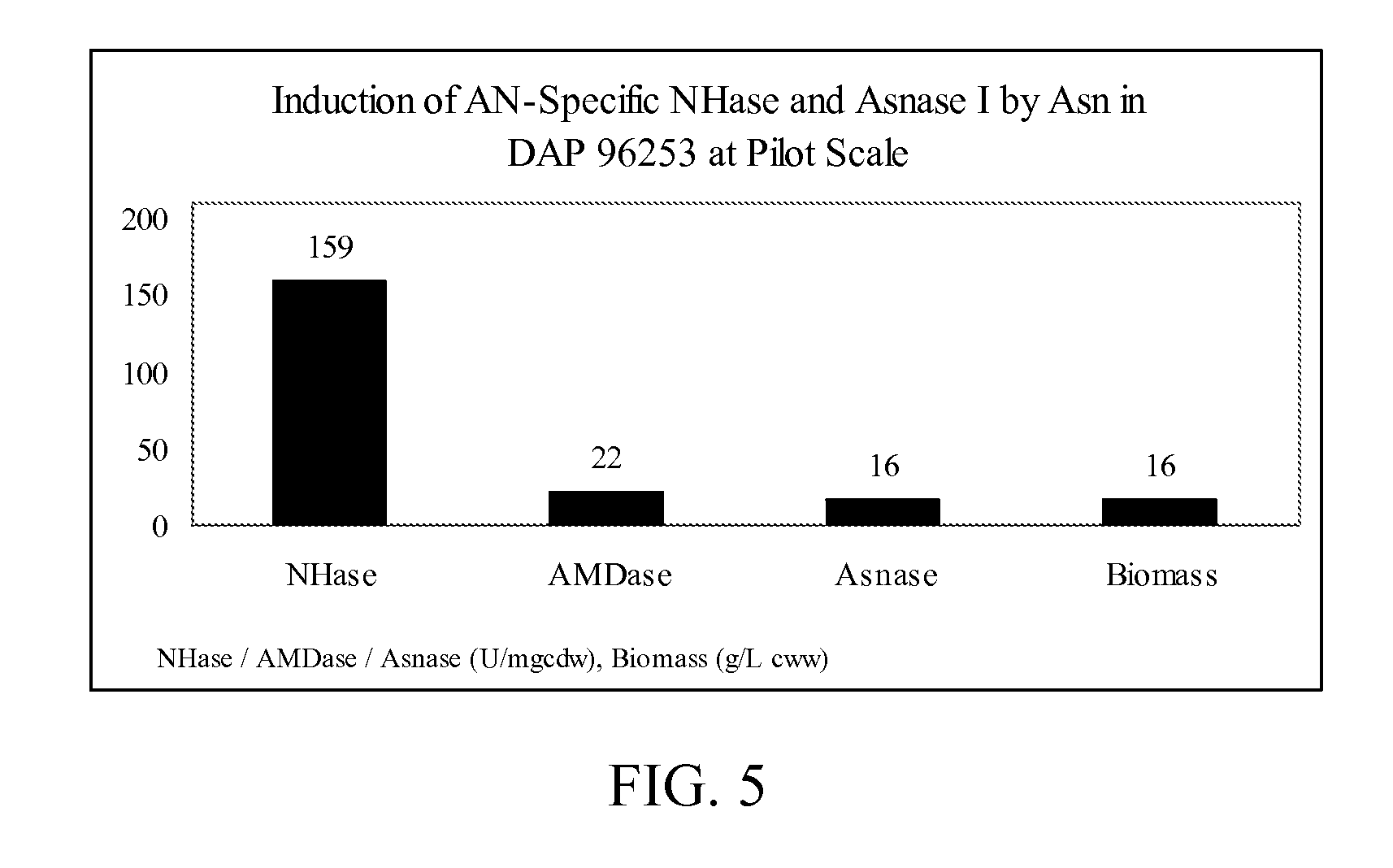Induction and stabilization of enzymatic activity in microorganisms
- Summary
- Abstract
- Description
- Claims
- Application Information
AI Technical Summary
Benefits of technology
Problems solved by technology
Method used
Image
Examples
example 1
Nitrile Hydratase and Amidase Induction
[0077] The induction of nitrile hydratase activity and amidase activity in Rhodococcus sp., strain DAP 96253, was evaluated using multiple types of inducers (1000 ppm). Three different samples were cultured in YEMEA medium containing 10 ppm cobalt and 7.5 g / L urea and supplemented with acrylonitrile, asparagine, or glutamine. The specific nitrile hydratase activity and the specific amidase activity in each sample was evaluated, and the results are provided below in Table 1, with activities provided in units / mg cdw (cell dry weight). One unit of nitrile hydratase activity relates to the ability to convert 1 μmol of acrylonitrile to its corresponding amide per minute, per milligram of cells (dry weight) at a of pH 7.0 and a temperature of 30° C. One unit of amidase activity relates to the ability to convert 1 μmol of acrylamide to its corresponding acid per minute, per milligram of cells (dry weight) pH of 7.0 and a temperature of 30° C.
TABLE ...
example 2
Stabilization of Nitrile Hydratase Activity Using Calcium Alginate Immobilization
[0079] Testing was performed to evaluate the relative stability of cells induced for nitrile hydratase activity using asparagine in the culture medium. Rhodococcus sp., strain DAP 96253, was cultured using a standard culture medium alone or supplemented with asparagine. Cells were recovered from the culture and immobilized in calcium alginate beads (2-3 mm diameter). To prepared the beads, 25 g of a 4% sodium alginate solution (1 g sodium alginate in 24 ml of 5 mM TRIS-HCl-pH 7.2) was prepared, and 25 mg of sodium meta-periodate was dissolved therein (stirred at 25° C. for 1 hr or until all alginate has dissolved). The cells for immobilization were suspended in 50 mM TRIS-HCl to a final volume of 50 ml, and the cell solution was added to the alginate mixture while stirring. Beads were formed by extruding the mixture through a 27G hypodermic needle into 500 ml of 0.1M CaCl2. The beads were cured for 1 h...
example 3
Stabilization of Nitrile Hydratase Activity Using Polyacrylamide Immobilization
[0083] Testing was performed to evaluate the relative stability of cells induced for nitrile hydratase activity using asparagine in the culture medium. Rhodococcus sp., strain DAP 96253, was cultured using a standard culture medium supplemented with asparagine. Cells were recovered from the culture and immobilized in cross-linked polyacrylamide cubes (2.5 mm×2.5 mm×1 mm). The polyacrylamide solution was prepared, and the desired loading of cells was added. The polyacrylamide with the cells was cross-linked to form a gel, which was cut into the noted cubes. No further known stabilizers were added to the polyacrylamide. Two samples were prepared for evaluation: Sample 1—cubes with low cell load (prepared with suspension comprising 1 g of cells per 40 mL of cell suspension); and Sample 2—cubes with high cell load (prepared with suspension comprising 4 g of cells per 40 mL of cell suspension).
[0084] The imm...
PUM
| Property | Measurement | Unit |
|---|---|---|
| Temperature | aaaaa | aaaaa |
| Fraction | aaaaa | aaaaa |
| Fraction | aaaaa | aaaaa |
Abstract
Description
Claims
Application Information
 Login to View More
Login to View More - R&D
- Intellectual Property
- Life Sciences
- Materials
- Tech Scout
- Unparalleled Data Quality
- Higher Quality Content
- 60% Fewer Hallucinations
Browse by: Latest US Patents, China's latest patents, Technical Efficacy Thesaurus, Application Domain, Technology Topic, Popular Technical Reports.
© 2025 PatSnap. All rights reserved.Legal|Privacy policy|Modern Slavery Act Transparency Statement|Sitemap|About US| Contact US: help@patsnap.com



